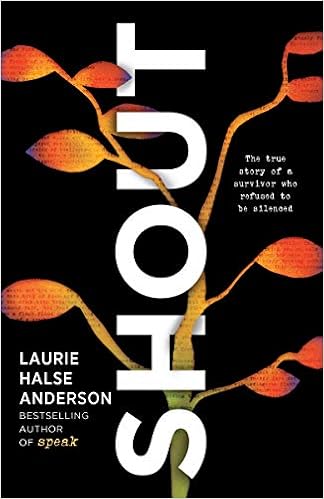ROCHA'S TOP TEN 2019 BOOKLIST
 10) The Moment of Lift: How Empowering Women Changes the World by Melinda Gates
10) The Moment of Lift: How Empowering Women Changes the World by Melinda GatesThis book teaches all of us how to be better: by helping each other. The Moment of Lift is inspirational without being preachy and inclusive without condemning those who are already included. It is well worth the read, and I find myself thinking about it months later, which is always a sign of a meaningful text.
4.5/5 stars
9) Lovely War by Julie Berry

Julie Berry's latest work is truly authentic in every way. Greek gods and WWI combined with engaging and human characters, pull the reader in, heart, mind, and soul. This is an outstanding read worth of the title Lovely War and written by one of the kindest authors I have had the pleasure to meet in person.

8) Men We Reaped: A Memoir by Jesmyn Ward
I am a bit late to this work, but having read and loved Sing, Unburied, Sing, this popped up as a recommendation, and I am so glad it did! This memoir absolutely broke my heart multiple times. This is a gut-wrenching reflection of lives that matter in a part of America that somehow seems foreign to me. The memoir continued to maintain my attention, but a desire for the title and overview to be wrong compelled me forward.
4.5/5 stars
7) The Huntress by Kate Quinn

Kate Quinn's latest NYTimes Best Seller is even better than The Alice Network, in my opinion. Her characters propelled the story emotionally and taught me about the power of female Russian pilots in WWII. Historical fiction remains one of my favorite genres, yet I rarely selected from this genre in 2019. This novel caused me to want more, and I love that in a book. Great read!
4.5/5 stars

6) The Silent Patient by Alex Michaelides
This psychological thriller kept me guessing until almost the very end! The plot engages, but the characters are where it's at! I loved the writing style and the escape from reality it provided.
5/5 stars

5) With Fire on High by Elizabeth Acevedo
Liz Acevedo quickly became one of my favorite authors with The Poet X, and With Fire on High continues that distinction. This prose work is built on quality, strong female characters with male complements that are valued. Focusing on the power of cooking for those you care about, the storyline and character development engage audiences at every level!
5/5 stars

4) Dear Evan Hansen by Val Emmich
Focusing on the critical topic of teenage suicide through the isolates lenses of boys left so lonely that at least one fictionalizes a friendship to feel less alone. This is a brilliant, contemporary text that belongs in every classroom library.
5/5 stars

3) The Astonishing Color of After by Emily X.R. Pan
This is an absolutely beautiful book that artfully weaves family, heartbreak, mental illness, love, and never-ending grief that re-shapes a person to their core. My review can't do it justice.
5/5 stars
2) The Nickel Boys by Colson Whitehead

Colson Whitehead is a contemporary gift to readers who tells the compelling and often hard-to-read stories of America's complicated history. These facts and stories still impact our lives and shape our future, whether those with privilege acknowledge it or not. A fantastic, and teachable, book that will undoubtedly lead to Whitehead's inclusion in literature curricula nationwide.
5/5 stars
1) Shout by Laurie Halse Anderson
Raw and authentic, this poetic cleansing is an at-times anguished rejection of the "ugliness" of humanity. In serving as a reflection and celebration of the strength of survivors, Anderson confronts the terror, fear, isolation initially brought to readers through Melinda in Speak some 20 years ago. Laurie Halse Anderson is a gift to memory and language in a world that seldom seems to say anything that matters. She remains an influential author and poet who will long be remembered as a voice that Generation X understood, felt, and embraced.
5/5 stars
























